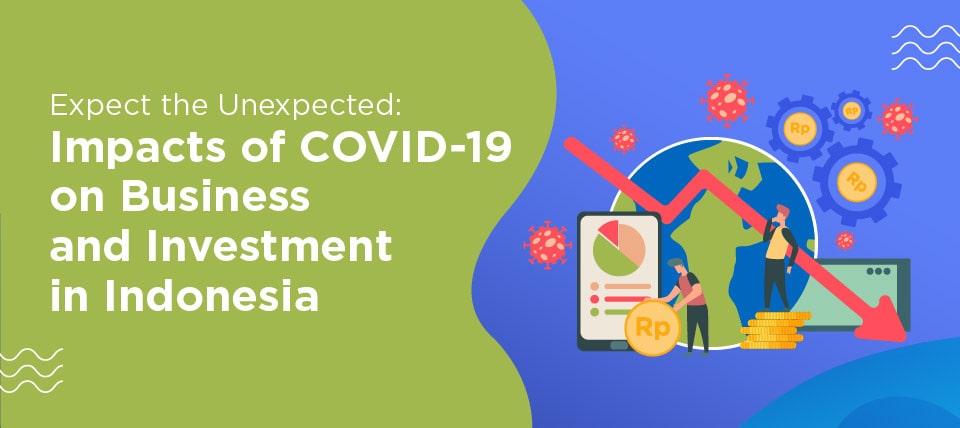Expect the Unexpected: Impacts of COVID-19 on Business and Investment in Indonesia

The COVID-19 is surely bringing a new mass hysteria, especially to people who rely heavily on investments. It is not impossible to still be making a profit and taking advantage of the global pandemic. If you are interested to know more about how to survive to invest during COVID-19, you need to know more about what to expect from the pandemic.
Tae Yong Shim, CEO of Mirae Asset Sekuritas Indonesia and alumnus of BINUS Business School MM Executive in Strategic Management, shared his insights on the business and investment sector during the COVID-19 through the webinar on Wednesday, 15 April 2020.
Overview of the virus
Coronaviruses are a large group of highly contagious viruses that are usually found in animals. Unfortunately, these viruses have developed into a massive global threat, known as COVID-19. The viruses are spread through droplets from coughs or sneezes, which can be transferred via physical contact, respiratory system, and objects.
The symptoms range from flu, fever, and cough, though can develop into severe pneumonia. About 1.8 million people have been infected with more than 100,000 deaths, making COVID-19 declared as a pandemic.
The social-economic impact in Indonesia
As of April 12th, there were 1,706 confirmed cases of COVID-19 in Jakarta alone, amassing 51.8% of the total cases in Indonesia. Since Jakarta is the capital city of Indonesia and the hot spot for foreigners to reside in, COVID-19 is generally believed to affect the Indonesian middle class and up. Panic shopping, bonds, and equities sales experienced high increases.
The government has issued de-facto lockdowns across the cities (PSBB), suspending business operations. This creates social and economic restrictions, which weakens the economic growth for a couple of months during the second quarter of 2020. Retail sales have been experiencing a sharp decline.
Impact on business
Since the COVID-19 originated from China, the manufacturer of the world, it is safe to say that the pandemic widely affects the global economy. The biggest impact can be felt by the tourism sector. China itself comprises USD 277 billion on tourism expenditure, a massive blow to tourism and airline revenues. Looking back to SARS, the tourism and airline sectors may recover in 6 to 7 months.
Another sector affected by COVID-19 is manufacturing. Data sourced from Bloomberg shows that China’s manufacturing and services PMI (Purchasing Manager’s Index) experienced a sharp decline in February 2020. Should this prolong, this will impact various businesses that depend on China’s manufacturing, such as technology, food and beverage, and automobiles.
As China is the largest oil importer in the world, the setback will create a demand cut for oil sales. Combining it with the rise of USD value, this will pressure commodity prices all around the globe. 97% of antibiotics and 80% of active pharmaceutical ingredients needed to manufacture drugs in the US are originated in China. Should China commence protectionism, an act to close down exports in order to protect the citizens, the economy will plummet.
The retail and commerce sector has also been experiencing a negative impact, not limited to big companies like Walmart and Macy’s. The social distancing results in less offline traffic, reducing the retail sales that are not parts of non-essential products or services.
Impact on export and import oil
The COVID-19 outbreak creates a severe impact on commodity prices, plummeting 23% from the normal prices. The price of oil is falling because of both supply and demand during the COVID-19. As stated before, China is the biggest consumer of oil, slumping the demand for oil. However, the OPEC alliance with Russia has collapsed, resulting in low prices of oil. Saudi Arabia is reportedly charging USD 10.25/barrel, a minimum profit considering the production cost of USD 9.
If the oil price remains at this level, Saudi Arabia will experience a devastating situation. To prevent this, they can increase the oil price, use up FX reserves, or borrow money. The low price can also affect the situation of many countries that import and export oil.
Smart ways to invest
COVID-19 is an unquantifiable risk, the first time the world comes into recession due to illness. The projection of COVID-19 is unrealistic and unreliable. Most stock markets are experiencing free fall. Since it is an unquantifiable risk, investors must reside in the older system of supply and demand. The more people try to sell, the more hammered the stock market is and vice versa.
Though, there is a bounce-back in Indonesia’s market situation. There are more retail investors than foreigners currently. Knowing that the market prices plummet, it is best to start buying high-quality stocks. If the virus infects Indonesia over a prolonged time, the value will decrease sharply. However, the upside is investors may receive massive stimulus should the condition get better.
Investors must have the mindset of a futurist. There are 4 levels of investing, first starting from the advice of a friend, moving to technical analysis, and fundamental analysis. The highest level is becoming a futurist. Investors should be able to and have the courage to foresee the future, investing in new businesses and companies that are innovative. These companies have the potential to be successful. Imagine investing in Apple and Google in the ’90s, you would be a very successful investor by now!
